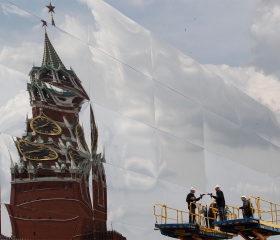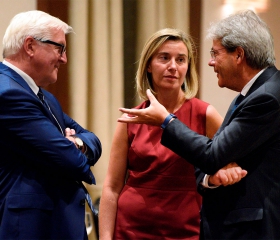Vladimir Putin has mentioned several times that the collapse of the Soviet Union was a geopolitical mistake. Although these words were often interpreted as his desire to constitute that country, there is little reason to believe this. Should the West be concerned about the Eurasian Economic Union? Is it a disguised attempt to resurrect the Soviet Union?
Does Vladimir Putin want to restore the Soviet Union? Nobody can irrefutably prove that he does not. However, nobody can prove either that Barack Obama does not want to turn the United States into amonarchy or that Bill Bailey has no wish to become the new Dalai Lama. It is apparent that Putin feels nostalgic about the Soviet past, which is only natural for a person of his age and background. I also feel nostalgic about the 1970s and 1980s: these were the times of my childhood and my youth, with all the wonderful, unforgettable things so uniquely associated with that period in life.
All the dreams, wishes, hidden desires and nostalgia brushed aside, can Putin realistically plan to restore the Soviet Union? The answer is a definite “no” assuming that the Russian leader is a rational politician capable of a realistic assessment of Russia’s current capabilities as well as of the nature of today’s international system.
First, the Soviet Union was erected on the foundation of a cohesive and powerful communist ideology that had – at least in the first half of the 20th century – hundreds of millions of enthusiastic supporters all over the world.
The current Kremlin emphasis on “sovereignty” and importunate concerns about the “color revolutions” demonstrate isolationist rather than expansionist reflexes of the regime; both display the evident fear of foreign ideologies penetrating Russia rather than an intention to promote another universalist ideology abroad.
Second, the Soviet Union had at its foundation a unique modernization model. It was cruel and ruthless, but in many ways, it provided for very efficient social and political mobilization. The most graphic example of this capacity is, of course, the Second World War, but there are others, such as the Soviet space program. Today this uniqueness no longer exists – Russia has become a capitalist state, even if its transition from communism is incomplete and incoherent.
Third, there is simply not the political will and commitment needed to start restoring the former Soviet Union. After German reunification, Berlin introduced the so-called “solidarity tax” to facilitate the integration of the former East Germany into the Federal Republic; German society accepted this additional burden without too much opposition. However, the idea of a similar “solidarity tax” to integrate Crimea into Russia did not meet with a lot of enthusiasm in Moscow and was swiftly abandoned.
Does this mean that Russia is not trying to maintain its influence on the territory of the former Soviet Union? Of course not. The former Soviet republics are not the same for Russia as British colonies in Africa were for the UK; the level of Soviet economic, social and cultural integration makes these republics more similar to Ireland and Scotland.
The chronicle of Kremlin policies in its neighborhood for the past 25 years has been to a large degree a chain of attempts – mostly quite clumsy and unsuccessful – to create a belt of friendly states along Russia’s borders, to maintain economic, social and humanitarian ties that have deep roots in the history of this vast region.
Long-term repercussions of the crises in Georgia and Ukraine make this goal more challenging and distant than ever, but even these bloody conflicts do not change a fundamental reality: Russia can be secure and prosperous only if it is surrounded by stable, vibrant and friendly neighbors.
The most recent attempt to approach this daunting task is the concept of the Eurasian Economic Union (EEU). Should the West be concerned about this undertaking? Is it a disguised attempt to resurrect the Soviet Union?
Once again, my answer is “no.” In my view, EEU is either hopeless or harmless. It is hopeless if it remains a “holy alliance” of antiquated economic and social regimes unable and unwilling to launch any meaningful reforms. It is harmless if Eurasian economic integration goes hand in hand with a deep transformation of member states in the direction of free market, social innovation and political pluralism. In this latter case, Russia may finally overcome its post-imperial trauma without accumulating more costs in blood and treasure.
First published in RBTH






